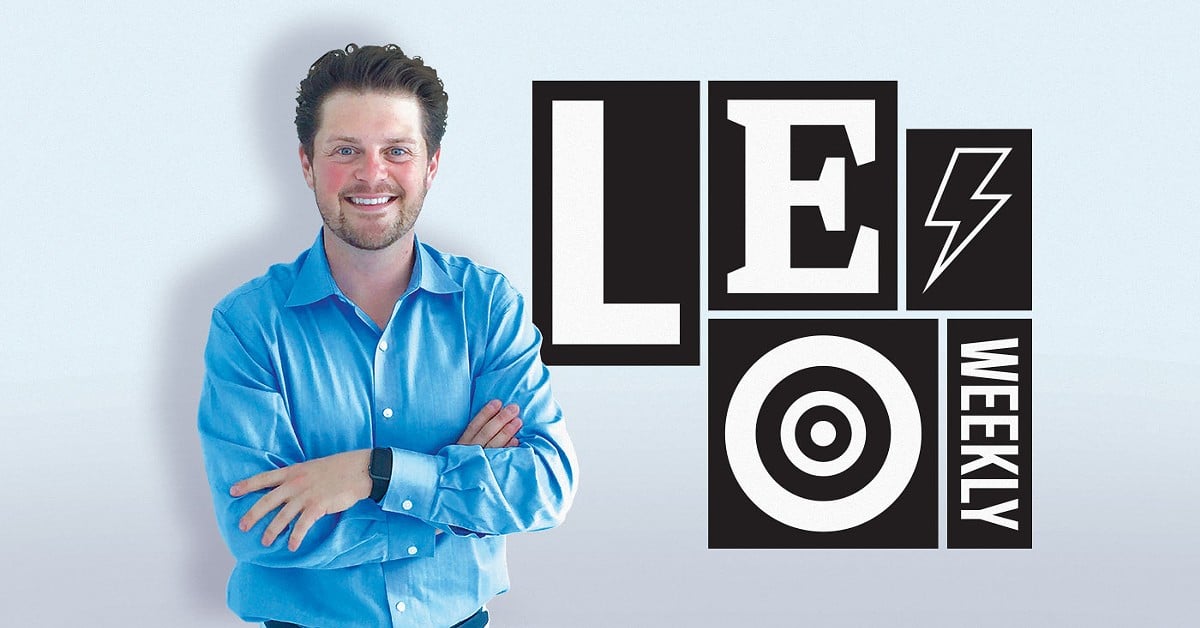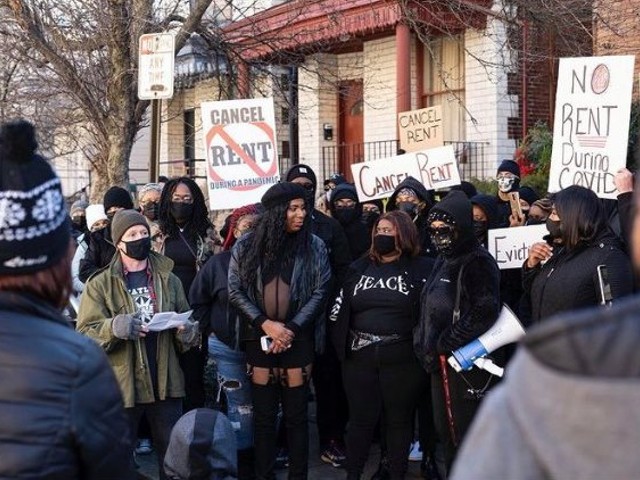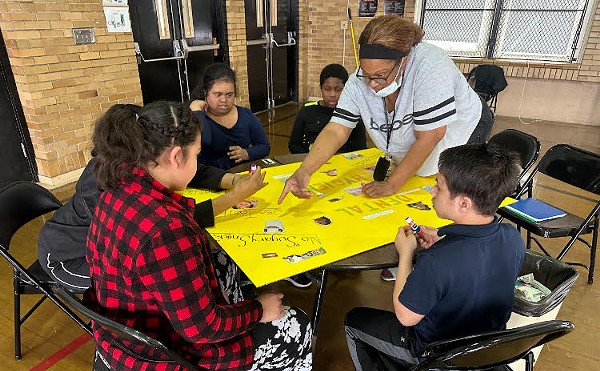As a half-Jewish millennial, it’s clear to me that peace and long-term security of Israel must be led by Jews — both Israeli and American — which dovetails with Israel’s unbreakable relationship with the United States. Palestinians and Palestinian supporters share responsibility, as well, but their role is much simpler. But the only “wrong” position is to claim absolute righteousness on either side — without, at least, respecting the complex history and “wrongs” of each side.
We’ll get to that, but I want to start with how we got here, today.
Recently I was watching a Washington Capitals hockey game. They were playing the New York Rangers for the second time in only a few nights. Long story short, there was some tension that carried over from the previous game, and, as they lined up for the puck drop, both teams gave the other that look: “Are we going? … Yep.”
As the puck dropped, so did the players’ gloves, and fights ensued across the ice. In the first period (only 20 minutes), 100 penalty minutes were served for players fighting and taking shots at each other.
That’s what is going on in Israel right now — planned, almost scripted fighting. One side claims they’re fighting back because of evictions, unlawful settlements and oppression, while the other side argues it’s retaliating because of constant attacks, and they have a right to defend themself. But the origin of every grievance, for each side, has a history going back to the early 2000s, then the early 90s, then wars in 1973 and 1967, and Israel’s founding in 1948 (then the Ottoman and Roman empires hundreds and thousands of years ago).
This complicates the narrative when telling the story of today’s conflict. The media can’t recount the entire history of the state of Israel for every story or report — which, in turn, leads to abbreviated, incomplete narratives, and people taking sides based on incomplete information: “Free Palestine” or “Israel has a right to defend itself.”
The real reason (at least, the only one that matters) for why there has been fighting in recent weeks, is that the leadership of both sides — Israel Prime Minister Benjamin “Bibi” Netanyahu and Hamas — decided it is in their own interest to drop the gloves and fight. Forgive my crude hockey analogy, but that’s what Tom Friedman wrote in the New York Times: “No, Hamas and Bibi don’t talk. They don’t need to. They each understand what the other needs to stay in power and consciously or unconsciously behave in ways to ensure that they deliver it.”
That is the problem we’re trying to solve — when two sides just want to fight, it’s hard to incentivize peace.
So how do we create peace? Both an immediate ceasefire, as well as a long-term, sustainable peace?
Peace has to begin with Jewish Israelis and pro-Israel Americans allowing for a new, honest debate to occur. Those who question Israel’s actions can’t be labeled, “anti-Semitic,” or ostracized simply as, “you don’t understand,” or “Israel has a right to defend itself.”
Israel’s place in the world has changed since the ‘60s and ’70s, and so, too, must the debate.
An older generation of Jews had family members who survived — or didn’t survive — the Holocaust. They remember the importance of founding a Jewish state. And, for most of their lives, the state of Israel was David, while the Arab world was Goliath.
But that’s not the world we live in today. Israel, today, is Goliath. Gaza and Arab Israelis are David. And while Israel might have been defending itself in the past, it isn’t just defending itself today. Today, under Netanyahu, Israel is bullying a weaker minority and cultivating another generation of violence. Israel is even bullying us, the U.S., and abusing the “blank check” of support we have provided them for decades.
Israeli Jews and pro-Israel Americans must also distinguish between Israel and Netanyahu.
It’s clear that Netanyahu’s interests are not necessarily Israel’s interests. His antiquated ideology, which allows for disproportionate retaliation and killing of children, is the problem on the Israeli side.
In no world can it be right — or tolerated — that defending oneself includes killing children. Netanyahu deserves a date in an international court for war crimes (after he’s done with his current criminal trial in Israel), but nothing will improve until he is out of power.
Which brings us to the U.S.’ relationship with Israel.
Netanyahu has a keen understanding of U.S. politics and how to exploit U.S. leaders into serving his purposes. It’s what I think of as the “blank check” — the U.S. will support Israel first, no matter the cost, even at the expense of our own interests.
This is why the U.S. needs to reset its relationship with Israel and create one that fits the new, modern paradigm. Sure, when Israel was David, facing Goliath from all sides, the U.S. could blindly support Israel — that was simple. But the situation today is not so simple, and U.S. leadership is stuck in the past.
It reminds me of the movie “Love Actually,” when Hugh Grant, playing Britain’s Prime Minister, says to the U.S. president (Billy Bob Thornton), “I fear that this has become a bad relationship. A relationship based on the president [Israel, in this analogy] taking what he wants and casually ignoring all those things that really matter to Britain [United States, in this case] .… And a friend who bullies us is no longer a friend.”
With its “blank check” of support, this has become a one-way relationship, and Israel is the bully. There is no incentive or accountability for Israel to support our interests (when we want to, say… denuclearize Iran). Netanyahu knows this, and he is savvy enough to manipulate American politics to serve his purposes — like a bully.
The U.S. needs to make it clear that our “unbreakable friendship” with Israel is a two-way relationship — and one that puts this country’s interests first, always. Otherwise America is just a very powerful, somewhat autonomous, yet wholly-owned subsidiary of the Knesset — and Netanyahu is the CEO.
Failure to reclaim balance in this relationship further enables older, hardline-Netanyahu supporters and risks alienating support among younger generations of Americans — Jews and non-Jews, alike — which is more dangerous to Israel’s long-term security than the rockets.
On the other side, for Palestinians and pro-Palestinian supporters, the answer is simple: Give Israeli-Jews and pro-Israeli Americans a reason to feel safe. And denounce Hamas.
There is room for calls to “Free Palestine,” but those calls should include: “Free Palestine — from Hamas and Israel.”
Hamas is an internationally-recognized terrorist organization, full-stop. You cannot be pro-Hamas and anti-Taliban — both are as corrupt and as oppressive as any regime in the world.
They use Palestinian civilians, women and children, as human shields — or worse, as propaganda martyrs:
“The tactics of Hamas are to house its arsenals in schools and mosques, set up headquarters in the basement of hospitals and fire its missiles from sites next to crowded apartment buildings and hotels housing foreign journalists,” Bret Stephens wrote in the New York Times last week. “The idea is either to keep Israel from returning fire or, if it does, reap the propaganda benefits from televised and tweeted pictures of wrecked buildings and human casualties and ‘disproportionate’ Israeli-Palestinian death counts that obscure the fact that one side is doing what it can to protect civilian lives and the other side is doing what it can to endanger them.”
Sure, Israel has a right to protect itself, as do Palestinians. Here’s the question, though: Should Israel care more about protecting Palestinian lives than Hamas? (Yes, Israel should care… a lot. Again, it’s in their long-term interest.) If you believe Israel is defending itself, that’s an unanswerable question. And that is the fault of Hamas as much as it is Israel.
Finally, stop using exaggerated language. Inflammatory language creates further division by drawing incorrect dividing lines between sides — creating a false choice. There is a place for being pro-Palestine and pro-Israel. However, calls to “Abolish the Settler State,” to Israelis, sounds like Hamas’ sworn mission to destroy Israel.
Someone once told me: “When you mix politics and religion, it makes for bad politics and bad religion.” As a half-Jewish, half-Catholic millennial who spends both the Sabbath and Sundays (hopefully) on the golf course, this quote is as good as gospel.
If there is going to be an end to this current conflict — as well as long-term peace — all sides need to allow for a new conversation on Israel and Palestine. One that reflects and respects the long, complex history. One that acknowledges wrongdoing on both sides. Instead of continuing to fight the battles of the past, we need to fight the battles that will ensure a more peaceful, more free future.
Otherwise, we’ll end up right back here, saying, as Friedman wrote: “Once again, the past buried the future.”






